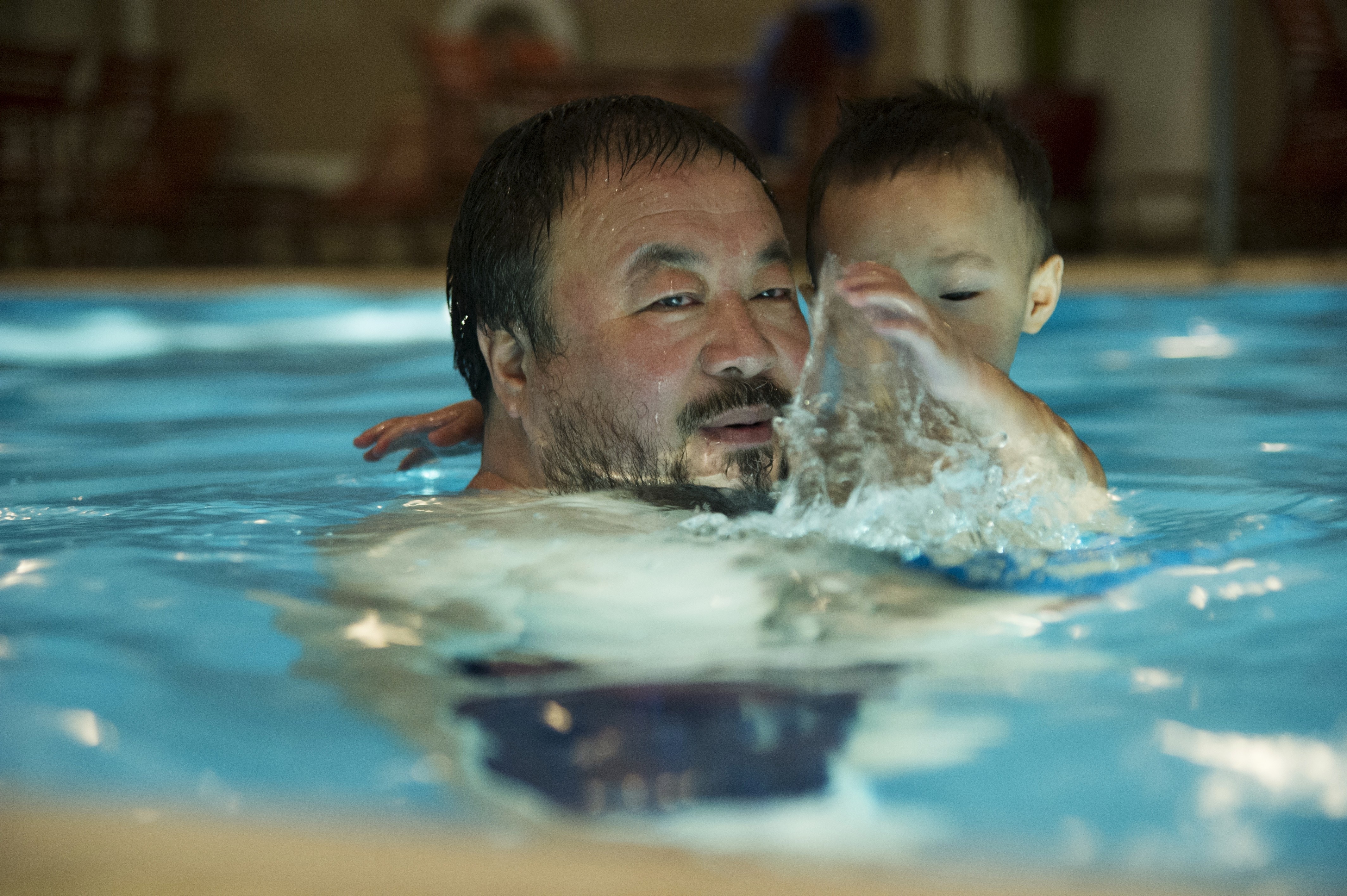To make a good documentary, you need to have a good subject. But more important, you have to be lucky. When Alison Klayman filmed her Ai Weiwei: Never Sorry, seen here in 2012, it was still fairly shocking that the Chinese activist and artist would be kidnapped and detained by his government for 81 days. She got to cover the period of his peak outspokenness (at home) and acclaim (abroad). Then came the cataclysm of his arrest—not something she wished, but a dramatic ending to her film.
Now Andreas Johnsen picks up the story, following Ai’s June 2011 release, and luck is not on his side. Limbo is where Ai presently resides, and it is not an interesting place. He emerges from incarceration discreet and abashed, if not quite muzzled. Under house arrest, he can’t travel. He can’t speak freely with the press. His art can only be seen abroad. He’s got his toddler son and business (called Fake Design) to protect, with employees on his payroll. By Chinese standards, he’s rich and famous—even if his name is scrupulously censored on Baidu, the state-controlled Internet search engine. And he is, now age 56, more cautious. If the government has accused Ai and Fake of tax evasion, his defense requires lawyers, money, and the tongue-biting that make it near-impossible to create art.
Yet create Ai does. We see the genus of his S.A.C.R.E.D., six boxed, half-scale dioramas of his prison experiences, currently on view in New York. (The Times’ Roberta Smith calls it “perhaps the best work of art Mr. Ai has yet made.”) He films everything, constantly monitors his own press, lives a kind of 24/7 performance-art existence, since the government is monitoring his every movement and Tweet. “I have no secrets,” he sighs—how unlike Picasso or Warhol before him. In a real sense, as with Klayman’s film, he’s orchestrating Johnsen’s documentary efforts, revealing what he wants, controlling the terms of access. In a recent interview, Johnsen said that Ai initially rejected him, saying, “Everybody wants to make a film with me—Hollywood, Europe, everybody. I have no time.” But in the end Ai, so media-savvy and active on Twitter, consented to eight visits over four years from the Danish director.
If this documentary, mainly a portrait of endurance, isn’t so scintillating, you can bet another enterprising Western filmmaker is already working with Ai on the next chapter of his remarkable life.
Runs Fri., June 27–Thurs., July 3 at Northwest Film Forum. Not rated. 86 minutes.
bmiller@seattleweekly.com








